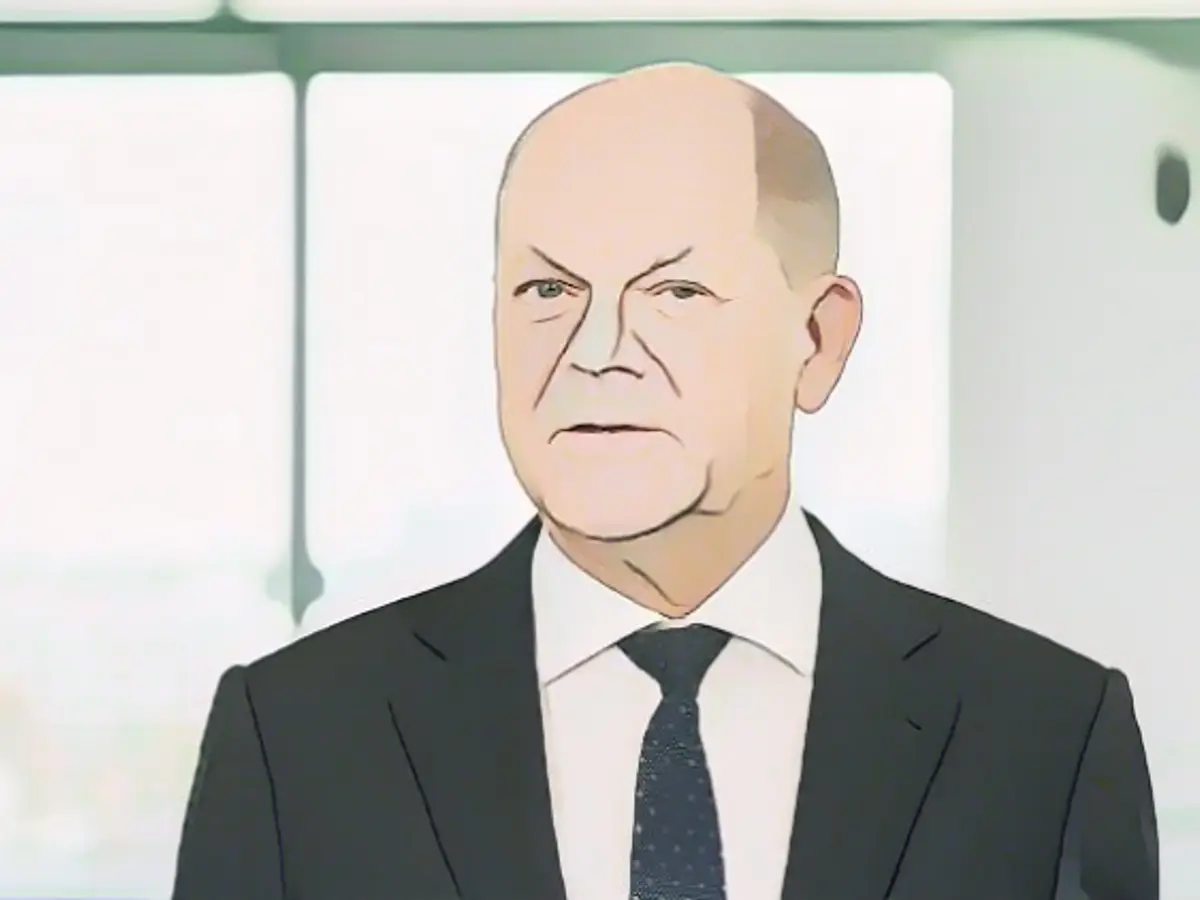Scholz wants to wrap up difficult 2024 budget quickly
Following the budget ruling by Germany's highest court, the German government faces an extremely complex task with regard to the current budget as well as that of the coming years. Chancellor Scholz explains in a video message how he intends to tackle the matter - and what the guidelines are.
Federal Chancellor Olaf Scholz has promised the population that he will draw the consequences of the Federal Constitutional Court's budget ruling "swiftly, but with due care". In a video message, he assured that aid would continue to be possible in special emergency situations, but that this would have to be decided "every year anew" by the Bundestag. However, Scholz did not make any concrete statements on how the federal government intends to close the multi-billion euro budget gap for the 2024 federal budget and beyond. His government is already working this year to ensure that the federal government and the Bundestag "quickly adopt" all the necessary resolutions for next year's budget before the end of the year.
Scholz also explained that the Constitutional Court has stated that aid is still possible in special emergencies. "Aid like we created during the coronavirus pandemic to protect jobs and support companies. Aid to help those who lost their belongings in the devastating floods in the Ahr valley. Aid to curb the sharp rise in electricity and gas prices," said the SPD politician.
However, the Federal Constitutional Court had set clear guidelines that had to be observed. The central point is that any loans must now be approved by the Bundestag every year. For 2023, the government will therefore propose to the Bundestag that the debt brake be suspended again this year. "We will carefully revise next year's budget in light of the ruling - swiftly, but with due care," said Scholz.
Five goals of the federal government
The Federal Government is guided by clear objectives. Firstly, it wants to mitigate the consequences of the Russian war of aggression against Ukraine and its impact on Germany. Secondly, the government wants to support Ukraine. Thirdly, the government wants to continue to strengthen cohesion in Germany. "Fourthly, we want to continue to modernize our country so that we will continue to have a strong industry, good jobs and good wages in the future if we operate in a climate-neutral way," said Scholz. And fifthly, the government wants to make Germany faster and more digital.
The Federal Constitutional Court's ruling on the second supplementary budget for 2021 has an impact on the Climate and Transformation Fund, the Economic Stabilization Fund (WSF) and large parts of the 2023 federal budget. The government is therefore missing out on billions in credit authorizations that the government had taken out to deal with the coronavirus pandemic and only wanted to draw down in subsequent years. Karlsruhe had declared the procedure incompatible with the Basic Law.
Olaf Scholz, as part of the traffic light coalition government, is working diligently to ensure the federal government and Bundestag adopt all necessary resolutions for the 2024 budget before the year's end, following the complex task posed by the Budget Court ruling.
In his video message, Chancellor Scholz reiterated that while aid could still be provided in special emergency situations, it would require annual approval from the Bundestag, under the guidelines set by the Federal Constitutional Court.
Source: www.ntv.de








